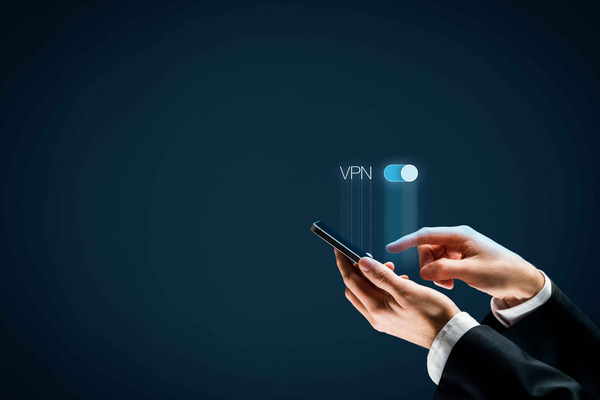
When you’re online, it’s easy to assume that you’re the only person who can see what you’re up to. But unfortunately, that’s not always the case: the internet is lively with snoops, hackers and other people who want to find out what makes you tick.
Enter: a Virtual Private Network (VPN). You might have heard of VPNs, especially if you’ve been working from home for a company that’s conscious about cybersecurity.
Wondering “should I use a VPN”? It’s a good idea to hop on a VPN anytime you’re online. A great idea, in fact — VPNs go a long way in protecting your privacy and personal information, and stop your data from being sold to the highest bidder.
Find out more about how a VPN works and what else you can do to strengthen your security while you’re browsing, working or shopping online.
What is a VPN, exactly?
VPN stands for Virtual Private Network. It’s a service that sets you up with a private, secure connection to the internet, and encrypts any data you send and receive. VPNs also hide your Internet Protocol (IP) address and location, blocking anyone from seeing who you are, where you are and what you’re doing
Think of it like a tunnel: it allows you to stay anonymous online and control access to your own communications.
VPNs don’t require a physical cord or cable to work. To hop onto a VPN, you’ll log on to a digital gateway, which is where the “virtual” part comes into play.
Top tip: Technically, a VPN refers to the secure network connection, while the software that manages that connection is called the VPN client. But these terms are used interchangeably, and there are a lot of cybersecurity companies that provide both the VPN and the VPN client to make the process easier.
What are the benefits of using a VPN?
VPNs function as a filter and add an extra layer of encryption to the information that passes to and from your internet connection.
How much does a VPN protect you? Let’s dive a little deeper into the functions of a VPN, and why they’re a must for remote-first companies and anyone using a public WiFi network.
#1 It disguises your IP address
A VPN’s main job is to hide your IP address from your Internet Service Provider (ISP) and other third parties so that they can’t see the sites you visit or the data you’re sending and receiving. VPNs redirect your IP address through a specially configured remote server, often in a different part of the world, and essentially become the source of your data. By hiding your whereabouts, VPNs stop cybercriminals from finding out your exact location. They also prevent ISPs from storing and selling your browsing history — aka everything you open, watch and click — to advertisers, marketers or subscription services.

#2 It encrypts your data
When data is unencrypted, it can be viewed by anyone with access to the network. That’s where a VPN comes in. It encrypts your data so hackers and other cybercriminals can’t decipher the code. In other words, VPNs make sure your data isn’t readable by anyone else — even if they manage to get their hands on it via a brute force attack. If you’re using a public WiFI network at the airport, coworking space or somewhere else, logging on to a VPN keeps your identity and online activities private. The best VPN services don’t store logs of your activities, either.
#3 It secures your connection for data sharing
Let’s say you work remotely, and often need to access important files on your company’s intranet. A VPN will establish a secure WiFi connection so you can safely open and download files without the risk of a data breach. The same goes for your personal activities. If you check your bank account, email or social media using an unsecured connection, it’s easy for hackers to track your login credentials or go as far as to steal your identity.
#4 It lets you stream regional content
Have you ever tried to stream a TV show or movie, only to learn it’s not available in your country? This is fairly standard: many sites and services restrict access to their content to specific parts of the world. Enter: a VPN. Since VPNs run your server through another country, they can effectively change your location to remove content blocks and let you stream regional content freely.
#5 It lets to access blocked websites
If you’re at school or work, you might learn some sites are blocked by your institution. And many countries limit access to sites like Google, Facebook, WhatsApp and Instagram. VPNs can help you bypass this kind of censorship by circumventing geo-blocking and reconfiguring your IP address.

#6 It allows you to get fair prices
Price discrimination is when e-commerce sites offer the same product to different people at different prices. They might set a price based on your location or how many times you’ve visited the site. Airlines are notorious for this: if you’re planning a trip, you might see the prices changing each time you check. By giving you an IP address in another part of the world, a VPN can help you steer clear of dynamic pricing, no matter how long you ponder the purchase.
How to set up a VPN
Along with desktops and laptops, you can use VPNs on phones, which means you can secure your internet connection even when you’re on the go. There are a few ways to install a VPN — via standalone software, browser extension or router. If your employer has asked you to connect to a VPN while you work, they’ll have a corporate VPN.
Whichever type of VPN you end up with, it’s a good idea to activate multi-factor authentication. This means you’ll need to enter a username and password, plus a code sent to your phone or email before you can successfully log into the VPN.
Double up on security with antivirus software
ESET Internet Security is an accessible option that protects your devices from a range of cyber attacks, including malware, ransomware and identity theft. It blocks offensive content and checks attachments and images for viruses. It also flags unauthorised devices trying to use your WiFi network and scans your router for vulnerabilities, offering peace of mind for remote workers and anyone accessing personal information online.
For multi-layered protection, look into ESET PROTECT Complete. This sophisticated antivirus software offers the same defences, plus it protects your cloud email, collaboration and storage systems (like Google Drive). It also offers endpoint protection, which is important when you’re communicating with people using wireless devices. The software has a remote management feature, a handy feature for companies with work-from-home teams.